Department of Internal Affairs (New Zealand)
| Agency overview | |
|---|---|
| Formed | 1840 |
| Preceding agency | |
| Jurisdiction | New Zealand |
| Headquarters |
46 Waring Taylor St, Wellington WELLINGTON 6011 41°16′55″S 174°46′35″E / 41.281821°S 174.776408°E |
| Annual budget |
Vote Internal Affairs Total budget for 2017/18 |
| Minister responsible |
|
| Agency executive |
|
| Child agencies |
|
| Website |
www |
The Department of Internal Affairs (DIA; Māori: Te Tari Taiwhenua) is the public service department of New Zealand charged with issuing passports; administering applications for citizenship and lottery grants; enforcing censorship and gambling laws; registering births, deaths, marriages and civil unions; supplying support services to Ministers of the Crown; and advising the government on a range of relevant policies and issues, part of a number of functions performed by Internal Affairs.
Other services provided by the Department include a translation service, publication of the New Zealand Gazette (the official newspaper of the New Zealand Government), a flag hire service, management of VIP visits to New Zealand, running the Lake Taupo harbourmaster's office (under a special agreement with the local iwi) and the administration of offshore islands.
During the late 1990s both the National Library of New Zealand and Archives New Zealand were separated from the Department along with the Ministry for Culture and Heritage. On 25 March 2010, the former Minister of State Services Tony Ryall announced that the Library and Archives would be merged into the Department.[2] Library and Archives stakeholders expressed serious concerns about the changes proposed.[3] On 1 February 2011, both were brought into the Department of Internal Affairs.[4]
History
The Department of Internal Affairs traces its roots back to the Colonial Secretary's Office, which from the time New Zealand became a British colony, in 1840, was responsible for almost all central Government duties. The Department was the first government department to be established in New Zealand, and it became the home for a diverse range of government functions providing services to New Zealanders and advice to Ministers of the Crown. Hence the title of Michael Bassett's 1997 history of the department: The Mother of All Departments.
Many of these responsibilities were lost as new departments and ministries were formed. The office's name was changed to the Department of Internal Affairs from 19 November 1907. Change has continued to the present day, as new roles and functions have come into the Department and others have been transferred elsewhere.[5]
Related organisations
The Department of Internal Affairs includes the Office of Ethnic Affairs, which provides information to ethnic communities and policy advice to the government and the Local Government Commission, which makes decisions on the structure and representation requirements of local government. The Department's present activities also include the implementation of recent dog control and local government legislation.
The Department has responsibility for supporting the community and voluntary sector through the Office for the Community and Voluntary Sector.
The Chief Executive of the Department of Internal Affairs is also the Government Chief Information Officer (GCIO), with responsibility for developing and overseeing the government's ICT (Information, Communications and Technology) strategy and providing strategic advice on related matters. The Department also includes the National Library of New Zealand, Te Puna Māturanga o Aotearoa and Archives New Zealand, Te Rua Mahara o te Kāwanatanga. These two organisations were integrated into the Department on 1 February 2011
The Department provides secretariat support for several entities including:
- The Gambling Commission
- The Local Government Commission
- Commissions of Inquiry and ad hoc bodies such as the Royal Commission on the Pike River Coal Mine tragedy and the Canterbury Earthquakes Royal Commission.
- The Library and Information Advisory Commission, Ngā Kaiwhakamārama i ngā Kohikohinga Kōrero
- The Public Lending Right Advisory Group
- The Guardians Kaitiaki of the Alexander Turnbull Library
- The Archives Council
- The Film and Literature Board of Review
- The Confidential Listening and Assistance Service
Ministers
The Department serves 6 portfolios, 7 ministers and a parliamentary under-secretary.[6]
| OFFICEHOLDER | PORTFOLIO(S) | OTHER RESPONSIBILITY(IES) |
|---|---|---|
| Hon Tracey Martin | Lead Minister (Department of Internal Affairs) Minister of Internal Affairs | |
| Rt Hon Winston Peters | Minister for Racing | |
| Hon Chris Hipkins | Minister Responsible for Ministerial Services | |
| Hon Nanaia Mahuta | Minister for Local Government | |
| Hon Jenny Salesa | Minister for Ethnic Communities | |
| Hon Peeni Henare | Minister for the Community and Voluntary Sector | |
| Hon Meka Whaitiri | Associate Minister of Local Government | |
| Michael Wood | Parliamentary Under-Secretary to the Minister for Ethnic Communities |
List of Ministers of Internal Affairs
The following persons have served as the New Zealand Minister of Internal Affairs[7] since the Department of Internal Affairs replaced the Colonial Secretary's office from 19 November 1907.
| Colour key (for political parties) |
|---|
| No. | Name | Portrait | Term of Office | Prime Minister | |||
|---|---|---|---|---|---|---|---|
| 1 | John Findlay |  |
1907 | 1909 | Ward | ||
| 2 | David Buddo | 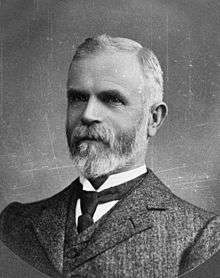 |
1909 | 1912 | |||
| 3 | George Warren Russell |  |
1912 | 1912 | Mackenzie | ||
| 4 | Francis Bell[8] | 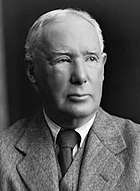 |
1912 | 1914 | Massey | ||
| (3) | George Warren Russell |  |
1914 | 1919 | |||
| 5 | John Bird Hine |  |
1919 | 1920 | |||
| 6 | George James Anderson |  |
1920 | 1921 | |||
| 7 | William Downie Stewart, Jr. |  |
1921 | 1923 | |||
| 8 | Richard Bollard |  |
1923 | 1927 | |||
| Bell | |||||||
| Coates | |||||||
| 9 | Māui Pōmare[9] | 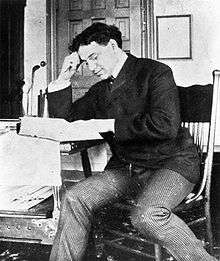 |
1927 | 1928 | |||
| 10 | Philip De La Perrelle[10] | 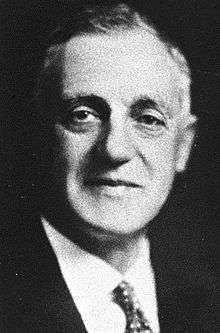 |
1928 | 1931 | Ward | ||
| Forbes | |||||||
| 11 | Adam Hamilton | .jpg) |
1931 | 1933 | |||
| 12 | Alexander Young |  |
1933 | 1935 | |||
| 13 | Bill Parry[11] | 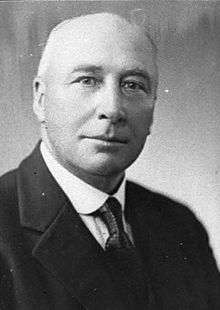 |
1935 | 1949 | Savage | ||
| Fraser | |||||||
| 14 | William Bodkin[12] | 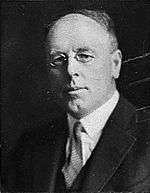 |
13 December 1949 | 26 November 1954 | Holland | ||
| 15 | Sidney Walter Smith | 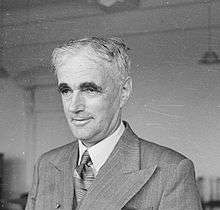 |
26 November 1954 | 12 December 1957 | |||
| Holyoake | |||||||
| 16 | Bill Anderton |  |
12 December 1957 | 12 December 1960 | Nash | ||
| 17 | Leon Götz |  |
12 December 1960 | 1963 | Holyoake | ||
| 18 | David Seath |  |
1963 | 1972 | |||
| 19 | Allan Highet | 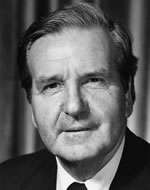 |
1972 | 8 December 1972 | Marshall | ||
| 20 | Henry May |  |
25 November 1972 | 29 November 1975 | Kirk | ||
| Rowling | |||||||
| (19) | Allan Highet |  |
1975 | 1984 | Muldoon | ||
| 21 | Peter Tapsell | 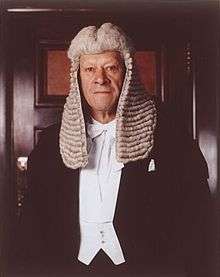 |
1984 | 1987 | Lange | ||
| 22 | Michael Bassett | 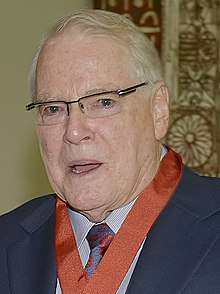 |
1987 | 1990 | |||
| Palmer | |||||||
| 23 | Margaret Austin[13] |  |
1990 | 1990 | |||
| Moore | |||||||
| 24 | Graeme Lee |  |
1990 | 1993 | Bolger | ||
| 25 | Warren Cooper[14] | 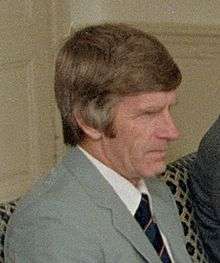 |
1993 | 1996 | |||
| 26 | Peter Dunne |  |
1996 | 1996 | |||
| 27 | Jack Elder |  |
1996 | 1999 | |||
| Shipley | |||||||
| 28 | Mark Burton |  |
1999 | 2000 | Clark | ||
| 29 | George Hawkins |  |
2000 | 2005 | |||
| 30 | Rick Barker |  |
2005 | 2008 | |||
| 31 | Richard Worth |  |
2008 | 2009 | Key | ||
| 32 | Nathan Guy[15] |  |
2009 | 2011 | |||
| 33 | Amy Adams[16] | 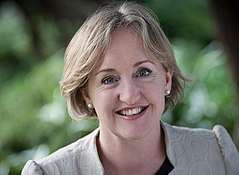 |
2011 | 2012 | |||
| 34 | Chris Tremain |  |
2012 | 2014 | |||
| (26) | Peter Dunne[17] |  |
2014 | 26 October 2017 | |||
| English | |||||||
| 35 | Tracey Martin |  |
26 October 2017 | present | Ardern | ||
Invitation to Present Commercial Opportunities
An invitation to present commercial opportunities (IPCO) is a process designed by the department to invite the private sector to present ideas for commercial relationships with government in relation to services already built/created by the government agency. The commercial relationships can include a public-private partnership or other arrangement between the private sector and the government to further develop, fund, innovate, distribute, and ensure uptake and use of the services.[18]
An IPCO is issued where a government is seeking options that provide it access to private sector specialised expertise, innovative ideas, and funding and the sharing of risk. Extending the reach of the services, while building on the benefits of established branding and related market penetration are also important.
An IPCO is not a procurement process for goods or services, and it does not signal whether any final decision has been made on any future procurement process or any other action will be taken by government. It is intended to enable government to gauge whether there are organisations interested in, and what options are available for, public-private partnerships or other commercial arrangements to use and/or further develop, fund, innovate, distribute, and ensure uptake and use of a government agency’s services by the public, government agencies and the private sector.
The IPCO process was developed in August 2009 to assist with collecting information from the private sector to use in advising government on future development and funding options for particular services. The IPCO has been used for two electronic identity services the New Zealand Government has built for government use to provide identity dependent services online. The two services are called the igovt logon service and the igovt identity verification service (igovt services). Government directed the Department of Internal Affairs to invite the market to provide written responses about whether private sector organisations were interested in:
- using the igovt services if available to them, and
- entering into public-private partnerships or other arrangements for the further development, funding, innovation, distribution, and ensuring uptake and use of the igovt services.
See also
Bibliography
- Bassett, Michael The Mother of All Departments (1997, Auckland University Press, Auckland) ISBN 1-86940-175-1
References
- ↑ "Total Appropriations for Each Vote". 2017 Budget. The Treasury.
- ↑ "beehive.govt.nz - State sector changes to improve performance". Beehive.govt.nz. Retrieved 25 November 2014.
- ↑ "Underpinning democracy: the future of Archives New Zealand : Press release". Aranz.org.nz. Retrieved 25 November 2014.
- ↑ Guy, Nathan. "Minister welcomes State Sector legislation (press release)". beehive.govt.nz. New Zealand Government. Retrieved 30 May 2014.
- ↑ "History of the Department". The Department of Internal Affairs. Retrieved 10 March 2015.
- ↑ "Ministerial List for Announcement on 6 October 2014" (PDF). Beehive.govt.nz. Retrieved 25 November 2014.
- ↑ "Ministries, etc". Rulers.org. Retrieved 2013-02-04.
- ↑ "THE NEW ZEALAND OFFICIAL YEAR-BOOK, 1913". Stats.govt.nz. Retrieved 25 November 2014.
- ↑
Butterworth, Graham (2012-10-30), "Pomare, Maui Wiremu Piti Naera", Dictionary of New Zealand Biography, Te Ara, retrieved 2014-01-30,
[...] in 1928 [he] served temporarily as minister of internal affairs.
- ↑
Bassett, Michael (1997). The Mother of All Departments: The History of the Department of Internal Affairs. Auckland University Press. p. 85. ISBN 9781869401757. Retrieved 2014-02-03.
[...] in the National Coalition government [... a] dour Southland farmer, Adam Hamilton, was minister of Internal Affairs until January 1933 [...]
- ↑
Gustafson, Barry (2012-10-30). "Parry, William Edward". Te Ara - the Encyclopedia of New Zealand. Dictionary of New Zealand Biography. Retrieved 2014-02-04.
Parry [...] was an automatic choice for Savage's first cabinet in 1935, and served as minister of internal affairs until 1949 [...].
- ↑
Brooking, Tom (2013-06-05). "Bodkin, William Alexander". Te Ara - the Encyclopedia of New Zealand. Dictionary of New Zealand Biography. Retrieved 2014-02-04.
When National won the treasury benches in 1949, he served as minister of internal affairs [...]
- ↑
Bassett, Michael (1997). The Mother of All Departments: The History of the Department of Internal Affairs. Auckland University Press. p. 194. ISBN 9781869401757. Retrieved 2014-01-30.
Margaret Austin [...] succeeded [Michael Bassett] as Minister of Internal Affairs in February 1990 [...]
- ↑
Bassett, Michael (1997). The Mother of All Departments: The History of the Department of Internal Affairs. Auckland University Press. p. 270. ISBN 9781869401757. Retrieved 2014-01-31.
After [Warren] Cooper's election to the [Queenstown] mayoralty [in October 1995] Bolger announced that he expected him to stand down as Minister of Internal Affairs in the New Year. Reluctantly, Cooper obliged.
- ↑
"Nathan Guy appointed as a Minister". Stuff.co.nz. 2009-06-15. Retrieved 2014-02-04.
National's senior whip Nathan Guy has been appointed as Internal Affairs Minister to replace Richard Worth, Prime Minister John Key said today.
- ↑
"Key brings new faces to front bench". Radio New Zealand. 2011-12-12. Retrieved 2014-02-03.
[...A]fter a Cabinet reshuffle announced by Prime Minister John Key [... t]here are four new ministers in the lineup. Selwyn MP and former Finance select committee chairperson, Amy Adams, is ranked 20 and is inside Cabinet. She will be Minister of Internal Affairs and Minister for Communications and Information Technology.
- ↑
"PM prepared to deal with NZ First". Radio New Zealand News. 2014-01-21. Retrieved 2014-01-30.
The Prime Minister [...] reinstated Peter Dunne as a minister. [...] Peter Dunne will be the Minister of Internal Affairs, Associate Health Minister and Associate Minister of Conservation outside of Cabinet. [...] The changes take effect from 28 January.
- ↑ "Government explores private sector interest in online igovt services". Department of Internal Affairs. 27 August 2009. Retrieved 11 April 2012.